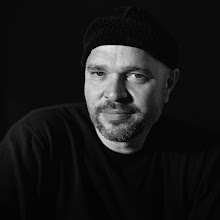by Edana Minghella, in Liguria, Italy.

Chatting to G, my neighbour, in the garden, when we hear something. A loud something that makes us prick up our ears. There are two thick walls and a metre-wide path between us, so we’re legal. It’s sunny and warm. We are tantalisingly close to the sea – only a twenty minute walk downhill through the olive groves – but we are not allowed to wander down there. It’s 15th March 2020, in Liguria, and thanks to the spread of deadly coronavirus, Italy is on lockdown.
It’s a man’s voice that we are hearing, muffled through a rubbish microphone, declaring something, sternly, authoritatively. I can’t make out the words. My limited Italian doesn’t help. It’s reminding me, incongruously, of the old rag and bone man who used to come with his horse and cart through our town on the Isle of Wight when I was a kid. But this isn’t a request for your old bedstead or a rusted radiator. It’s the police, G tells me, and together we listen again, harder.
Italy’s complete lockdown started a few days ago and people are only just getting used to it. Here in our small Ligurian seaside town, we had not been directly affected by the virus. But things escalated very, very quickly, much more quickly than any of us could have predicted. The speed of change, as much as its drastic nature, has been shocking.
Just three weeks earlier, a cluster of 11 small towns and villages, with a dense concentration of cases and subsequent deaths, had been put under quarantine: the red zone (“zona rossa”). It was distressing and alarming, but it seemed a distance away – some 200 miles further north – and it was being contained. Except it wasn’t. The disease was spreading and the death rate was increasing. On the 7th March, the red zone was expanded to include heavily populated, wealthy areas like Milan, Venice, Parma and Rimini. Two days later, restrictions started to cover the whole of Italy. People would have to maintain a distance of one metre from each other; restaurants and bars could stay open for limited hours but only if they could guarantee this distance; all sporting events would be cancelled; travel would be restricted; schools were closed; our beloved street markets forbidden. Finally on the 11th March – only five days after the sudden increase in the red zone – additional controls were introduced and the lockdown complete. All non-essential businesses were shut: no bars and restaurants, no hairdressers, no clothes stores, no post office, no banks, no solicitors’ offices, no estate agents, no stationers, no garden centres, no d-i-y shops, no Ikea, no nothing. Everyone was ordered to stay within their own homes, unless it was essential to go out for food, medical or emergency reasons. Any time we go out we must take with us a signed form, stating where we are going and why. Even with a valid reason to be outside, we must stay within our town’s boundaries. We must not congregate in groups. We cannot visit friends or family. We can be challenged at any point, and if we are found to be violating the restrictions, we could be fined.
The policeman’s voice is nearer and we can hear him better now. The beautiful day has tempted people out, it seems. There have been walkers, taking the paths up to the hills, perhaps thinking the countryside would be a safer bet than the beach. But walking out is strictly forbidden, and the police are calling through loudhailers to remind us:
-Everyone must stay at home!
-You can only go out for emergencies or necessities!
-You must stay at home!
G and I look at each other and raise our eyebrows. This is the new normal, and we have no idea how long it will last.

